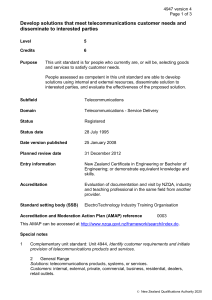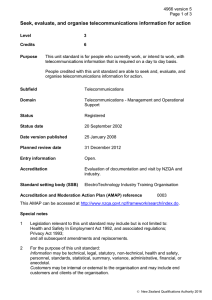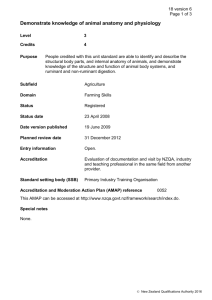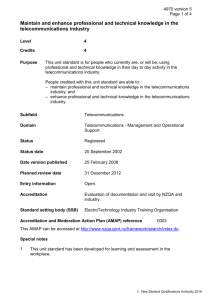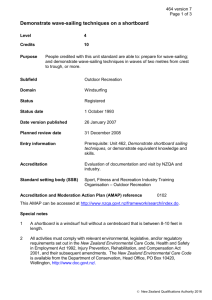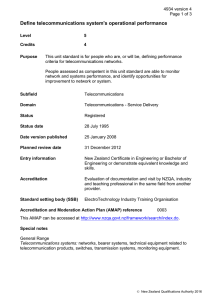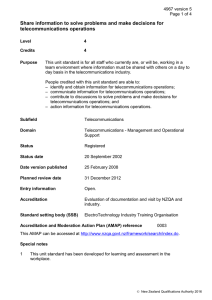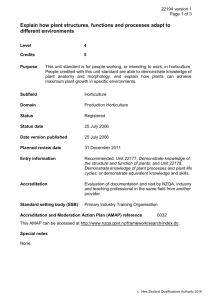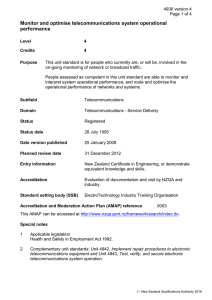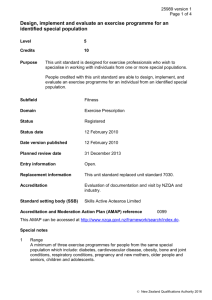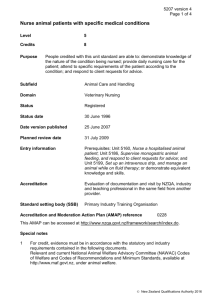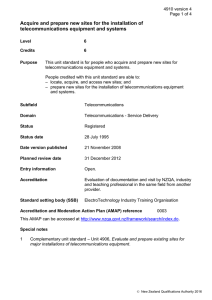46KB - NZQA
advertisement
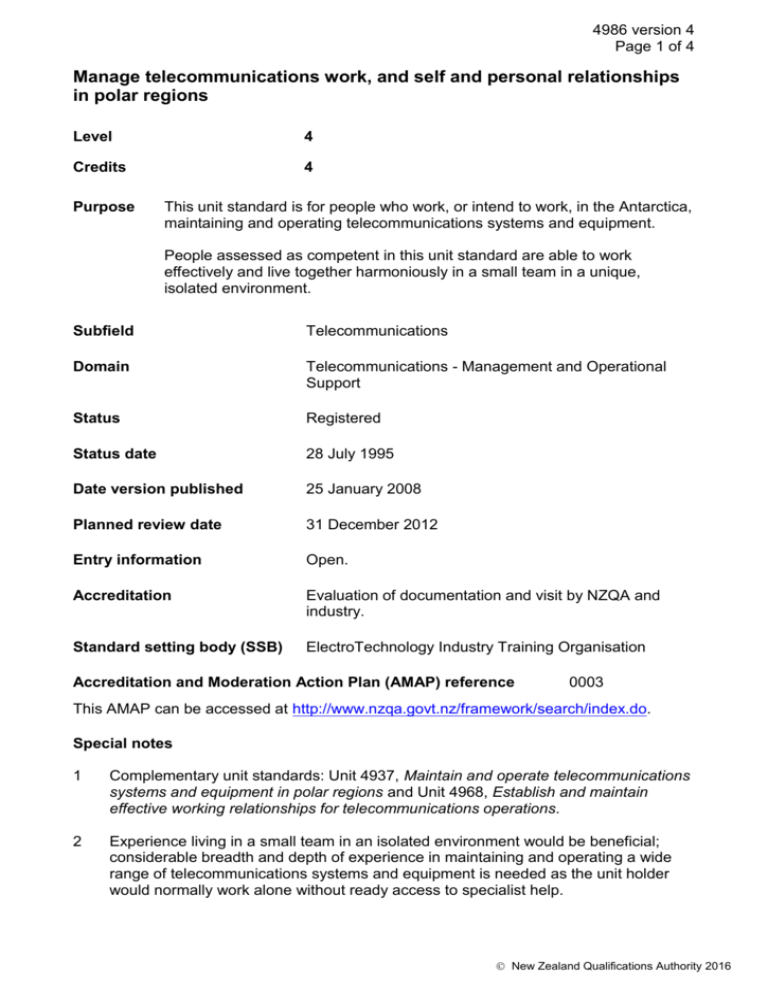
4986 version 4 Page 1 of 4 Manage telecommunications work, and self and personal relationships in polar regions Level 4 Credits 4 Purpose This unit standard is for people who work, or intend to work, in the Antarctica, maintaining and operating telecommunications systems and equipment. People assessed as competent in this unit standard are able to work effectively and live together harmoniously in a small team in a unique, isolated environment. Subfield Telecommunications Domain Telecommunications - Management and Operational Support Status Registered Status date 28 July 1995 Date version published 25 January 2008 Planned review date 31 December 2012 Entry information Open. Accreditation Evaluation of documentation and visit by NZQA and industry. Standard setting body (SSB) ElectroTechnology Industry Training Organisation Accreditation and Moderation Action Plan (AMAP) reference 0003 This AMAP can be accessed at http://www.nzqa.govt.nz/framework/search/index.do. Special notes 1 Complementary unit standards: Unit 4937, Maintain and operate telecommunications systems and equipment in polar regions and Unit 4968, Establish and maintain effective working relationships for telecommunications operations. 2 Experience living in a small team in an isolated environment would be beneficial; considerable breadth and depth of experience in maintaining and operating a wide range of telecommunications systems and equipment is needed as the unit holder would normally work alone without ready access to specialist help. New Zealand Qualifications Authority 2016 4986 version 4 Page 2 of 4 3 General Range Polar regions: Antarctica, Scott Base. Elements and performance criteria Element 1 Manage work in polar regions. Performance criteria 1.1 The response to duty calls is positive and prompt. Range 1.2 A flexible and innovative approach to solving equipment faults on base is maintained so operational requirements are met without the need for interruption. Range 1.3 all scheduled and unscheduled work required of the technician to maintain minimal base operations. Base procedures are followed. Range 1.5 all operational faults on all telecommunications equipment on base. Workload is managed without the need for supervision. Range 1.4 duty calls – day and night, all seasons, emergency, routine. health and safety; personnel; quality requirements; base routines and regulations. Communications with all personnel affected by work are clear, complete, accurate; and delivered in time to avoid management or operational problems. Range management and operational problems – undesirable interruptions to system performance and base operations. Element 2 Manage self and personal relationships in polar regions. Performance criteria 2.1 Self discipline on base is maintained and other people's right to privacy and quietness is respected. 2.2 Amicable, sensitive, and diplomatic relationships are maintained with all base personnel and multi-cultural values are respected. Range multicultural values – American, New Zealand, European. New Zealand Qualifications Authority 2016 4986 version 4 Page 3 of 4 2.3 Clothes worn are suitable to the conditions and length of time in conditions. Range 2.4 The location and planned time for all off-base work is recorded in the correct place before leaving the base. Range 2.5 sporting activities suitable for facilities available; any hobby or interest which is time and self absorbing, individual plus small team hobbies. Help with and contribution to housekeeping and cooking meals are undertaken willingly. Range 2.7 conditions – weather, terrain, living environment. Individual hobbies and interests are initiated and maintained. Range 2.6 full survival gear and parts thereof. meals – informal nourishing meals for groups up to 10; housekeeping – washing clothes, dishes, basic sewing repairs to clothes, cleaning. Base rules and regulations are followed. Range base personnel health and safety, emergency evacuation procedures, survival, operational. 2.8 A standard of personal grooming and hygiene which is inoffensive to colleagues is maintained. 2.9 Private living area is tidy, safe, and clean and causes no offence to colleagues. Please note Providers must be accredited by NZQA, or an inter-institutional body with delegated authority for quality assurance, before they can report credits from assessment against unit standards or deliver courses of study leading to that assessment. Industry Training Organisations must be accredited by NZQA before they can register credits from assessment against unit standards. Accredited providers and Industry Training Organisations assessing against unit standards must engage with the moderation system that applies to those standards. New Zealand Qualifications Authority 2016 4986 version 4 Page 4 of 4 Accreditation requirements and an outline of the moderation system that applies to this standard are outlined in the Accreditation and Moderation Action Plan (AMAP). The AMAP also includes useful information about special requirements for organisations wishing to develop education and training programmes, such as minimum qualifications for tutors and assessors, and special resource requirements. Comments on this unit standard Please contact the ElectroTechnology Industry Training Organisation reviewcomments@etito.co.nz if you wish to suggest changes to the content of this unit standard. New Zealand Qualifications Authority 2016
